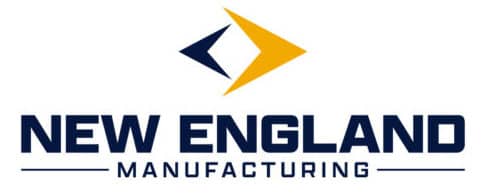Understanding Pitot Tube Flow Meters: Your Guide to Precision in Flow Measurement
Welcome to the dynamic world of fluid mechanics where mastering flow rate measurement is not just essential but an evolving art. In this sphere, the pitot tube flow meter emerges as a standout instrument for its precision and dependability. This guide will take you through the ins and outs of the pitot tube flow meter, providing insightful and easy-to-understand information. Whether you’re a professional or new to this field, you’ll find valuable insights about this critical tool.
The Basics of the Pitot Tube Flow Meter
Understanding the pitot tube flow meter begins with its core principles and structure. At its most fundamental level, this device measures fluid flow velocity by converting kinetic energy into potential energy, a principle based on Bernoulli’s equation. The typical pitot tube consists of two tubes: an impact tube that faces the fluid flow and a static tube that runs parallel to the flow. The impact tube measures the total pressure (static and dynamic), while the static tube measures the static pressure. The difference between these two pressures, measured by a differential pressure gauge, gives the flow velocity. This straightforward mechanism enables the pitot tube flow meter to work effectively in both gases and liquids, offering versatility for various industrial applications.
Applications and Versatility of the Pitot Tube Flow Meter
The pitot tube flow meter is not limited to one industry but finds its application in several, each with unique demands. In the aerospace industry, it is vital for measuring airspeed in aircraft. Environmental monitoring uses this device to measure water flow in rivers and streams, aiding in flood prediction and water resource management. In the manufacturing sector, it helps in monitoring and controlling processes by measuring the flow of gases and liquids through pipes. Its ability to provide accurate readings in high-velocity flows makes it a popular choice in power plants and HVAC (Heating, Ventilation, and Air Conditioning) systems for monitoring air and gas flows. The adaptability of the pitot tube flow meter to different mediums and its ability to function under varying flow conditions make it an indispensable tool across these diverse fields.
Advantages and Considerations When Using a Pitot Tube Flow Meter
The advantages of the pitot tube flow meter are numerous. Its simplicity makes it easy to install and use, and it is highly cost-effective compared to other flow-measuring instruments. Additionally, its minimal moving parts translate to lower maintenance requirements and a longer lifespan. However, users must consider certain factors for optimal performance. The pitot tube flow meter performs best in clean fluids; particulates or bubbles in the fluid can affect accuracy. It is also essential to ensure proper alignment with the flow direction for precise measurements. Regular calibration is necessary to maintain its accuracy, especially in applications where precise flow measurements are critical.
Installation and Maintenance: Maximizing the Pitot Tube Flow Meter’s Efficiency
Correct installation and diligent maintenance are crucial for harnessing the full potential of the pitot tube flow meter. During installation, it’s important to ensure that the tube is properly aligned with the flow direction and placed at the right depth in the fluid. The location should be free from disturbances such as bends, valves, or fittings nearby that could distort the flow. Regular maintenance includes checking for blockages in the tubes, ensuring the pressure ports are clear, and verifying the calibration of the differential pressure gauge. A well-maintained pitot tube flow meter not only guarantees accuracy but also extends the device’s operational life with New England Manufacturing.
Innovations and Future Trends in Pitot Tube Technology
The evolution of pitot tube technology is ongoing, driven by advancements in materials, design, and digital integration. Modern pitot tubes are being made with more durable materials to withstand harsh industrial environments, thereby increasing their longevity and reliability. Digital integration allows for real-time data collection and analysis, enhancing the accuracy of flow measurements. Looking ahead, the integration of IoT and AI is expected to bring a new level of efficiency and automation. These technologies could enable remote monitoring and predictive maintenance, reducing downtime and improving operational efficiency in industries relying on flow measurement.
Choosing the Right Pitot Tube Flow Meter: Factors to Consider
When selecting a pitot tube flow meter, it’s important to consider several key factors. First, understand the type of fluid (gas or liquid) and its properties, as this affects the choice of material for the pitot tube. Consider the range of flow rates that the meter must accurately measure, as different designs have different capacities. Environmental factors such as temperature and pressure conditions of the application area are also crucial. For applications demanding high accuracy, selecting a pitot tube flow meter with advanced features and calibration options is advisable. By considering these factors, you can ensure that the chosen pitot tube flow meter will perform effectively and efficiently in your specific application.
Conclusion
The pitot tube flow meter is a remarkable example of human engineering, combining simplicity, accuracy, and versatility. This exploration has shed light on the basics, applications, practical considerations, installation and maintenance, future innovations, and selection factors of this device. This knowledge will enhance your understanding and application of the pitot tube flow meter, whether you’re a seasoned professional or new to flow measurement. Embracing this tool will not only improve your measurement capabilities but also keep you ahead in an era where precision and efficiency are key.
Read More:
Pitot Tube Flow Meter with Static Pressure
Get in touch with us
Get in touch
We usually respond within 24 hours

